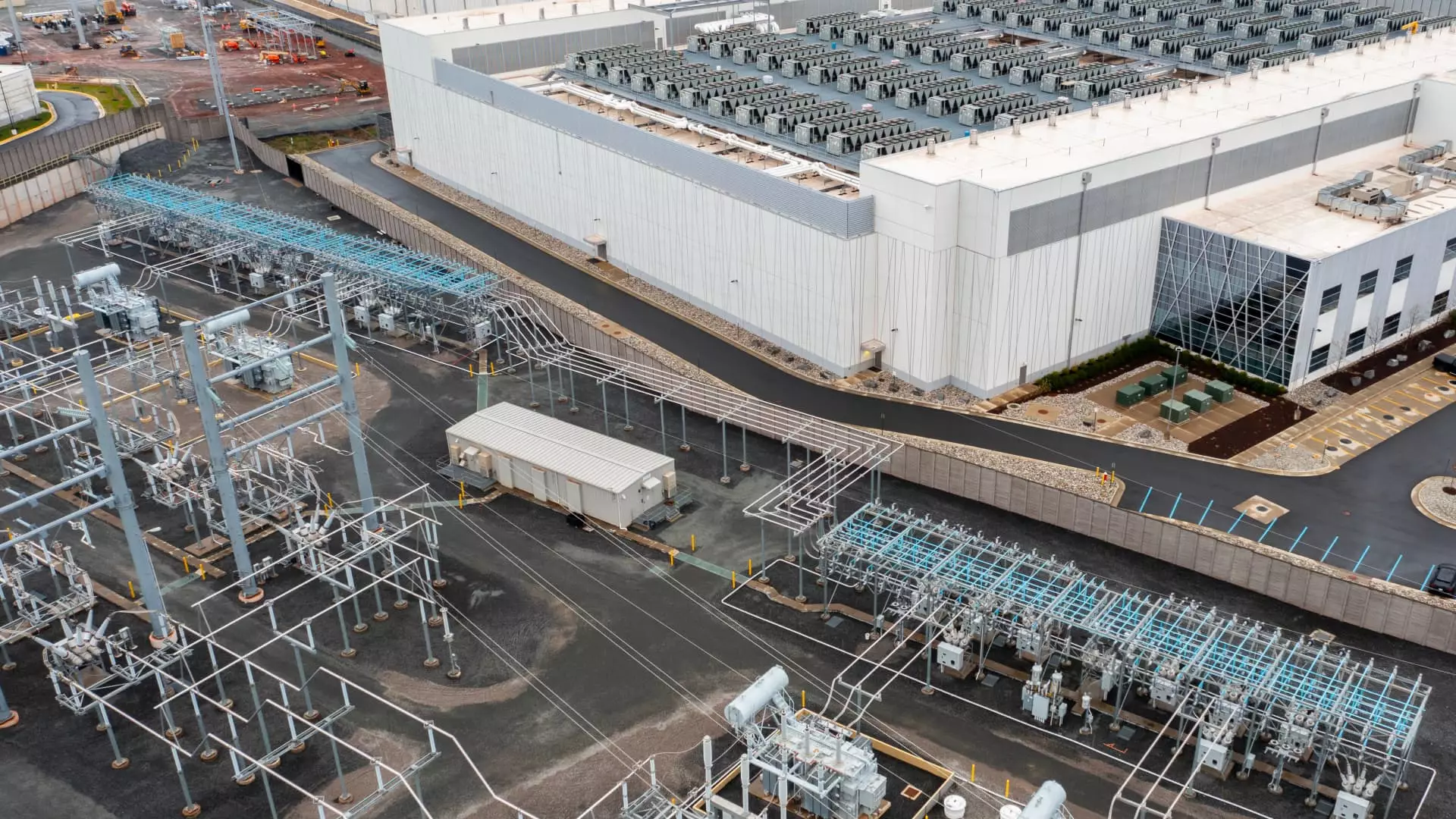The recent denial by the Federal Energy Regulatory Commission (FERC) to allow an expansion of power capabilities for Amazon’s burgeoning data center in Pennsylvania highlights an essential but contentious intersection of technology and energy. With tech giants ramping up their artificial intelligence (AI) operations, the demand for reliable and sustainable energy sources has surged. The crux of this situation revolves around Amazon’s planned utilization of power from the Susquehanna nuclear plant—a deal that promised to redefine energy sourcing for data centers. Unfortunately, what was heralded as a groundbreaking partnership has hit a significant hurdle.
FERC’s rejection has not only immediate financial repercussions for the independent power producer Talen Energy, which recently offloaded the data center campus to Amazon for a substantial $650 million, but it also sends ripples throughout the investor community. Talen’s stock experienced a notable decline of over 5% in premarket trading following the agency’s decision. Other energy companies like Constellation Energy and Vistra Corp. also felt the impact, with respective shares dipping significantly. This illustrates a poignant reality: investors had anticipated that such groundbreaking agreements would extend to other utility companies eager to partner with tech giants in the pursuit of generating substantial new revenues.
The urgency surrounding this initiative cannot be overstated. As we delve deeper into the digital era, data centers—particularly those accelerating machine learning and AI processes—are consuming unprecedented quantities of electricity. Utilities are grappling to meet this growing demand, and nuclear power emerges as one of the most reliable and clean options available. Its promise of low emissions and the capacity for continuous power makes it particularly appealing to companies wishing to mitigate their carbon footprints while scaling their energy supply.
The proposal to boost dispatch capability from 300 megawatts to 480 megawatts could have greatly enhanced energy efficiency for both the grid and consumers alike. FERC Commissioner Mark Christie emphasized the significant implications this arrangement could have on grid reliability and pricing for consumers, subtly hinting at a broader review of how regulatory frameworks may limit innovation in energy solutions.
In light of FERC’s ruling, Talen Energy has expressed concerns over the potential chilling effect on economic development across states such as Pennsylvania, Ohio, and New Jersey. The company is now contemplating commercial solutions that can adapt within the limitations imposed upon them. However, while the data center remains operational at the current power allocation, the prospect of future expansion is clouded. Talen has framed this as being in the “best interest of consumers,” but the need for energy innovations compatible with tech demands has never been more pressing.
One noteworthy aspect is that the FERC’s decision has no immediate detrimental effect on Constellation’s aspirations to revive the infamous Three Mile Island nuclear plant in 2028, intended to support Microsoft’s operations. While this plant’s output will be channeled to the grid rather than Microsoft directly, it showcases the complexity of energy agreements and their varying impact on future partnerships with tech firms.
The underlying question emerging from this situation is how will the nuclear sector adapt to the escalating demand from the tech industry? Vistra and Constellation, both of which have seen remarkable stock performance this year, are under immense pressure to exploit growth opportunities that align with the energy needs of tech companies. Stocks in these organizations have surged in anticipation of lucrative agreements similar to the Talen-Amazon arrangement.
The lesson here extends beyond the immediate market ramifications; it points to the intricate balance that must be struck between regulatory considerations and the pressing energy needs of an increasingly digital and data-driven economy. With the expectation that tech companies will continue to amplify their consumption of energy, the nuclear sector must position itself as a crucial ally, overcoming hurdles that may hinder future innovations in energy sourcing.
The interplay between regulation, technological advancement, and energy infrastructure remains a delicate dance, one that will ultimately shape the landscape of both industries for years to come.

